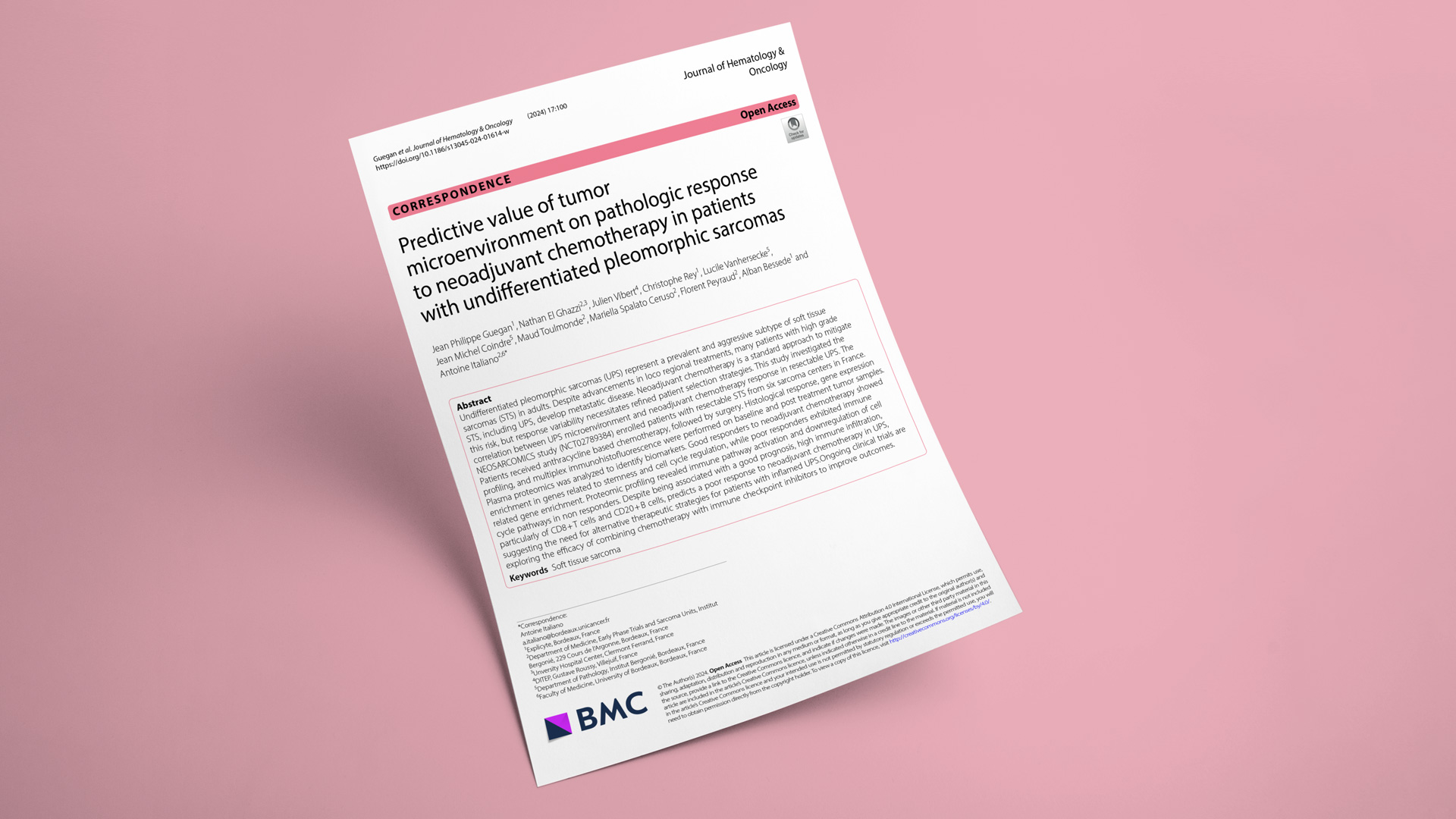In this retrospective study led by Pr. Antoine Italiano (Bergonié & Gustave Roussy Comprehensive Cancer Centers) based on the NEOSARCOMICS trial, we investigated whether microenvironment features of undifferentiated pleomorphic sarcomas (UPS) – an aggressive subtype of soft tissue sarcoma – could predict response to neoadjuvant anthracycline-based chemotherapy.
- Microenvironment features & prognosis without neoadjuvant therapy: We applied a multiplexed immunohistofluorescence (mIHF) panel on tumor samples from 47 patients with UPS who underwent surgical resection. We found that patients with poor survival had fewer infiltrated immune cells (especially CD8+ cells and M1 macrophages), while patients with better overall survival tended to feature high tumor infiltration.
- Microenvironment features & response to neoadjuvant therapy: We then analyzed the gene expression of baseline samples from 24 patients with resectable UPS, who were treated with neoadjuvant chemotherapy. We found that a good response was associated with a high proliferation and low immune infiltration phenotype. This finding was confirmed with the multiplex mIHF panel: patients who poorly respond to neoadjuvant therapy feature high immune infiltration. Plasma proteomics confirmed the upregulation of cell cycle pathways in low immune infiltration patients.
These results suggest that immune infiltration status can serve to stratify UPS patients before surgical resection. Patients with high immune infiltration benefit from a better prognosis from the start and may respond poorly to chemotherapy. However, neoadjuvant therapy may improve the prognosis of immune-low UPS patients.

